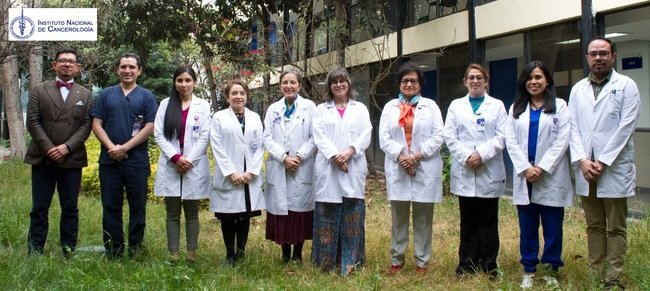
Endometrial cancer is a type of cancer that develops in the lining of the uterus, and it is the second biggest cause of gynecological cancer in the world. According to scientific evidence, women that suffer from metabolic syndrome (a condition that includes abdominal obesity and a cluster of events such as increased blood pressure and blood sugar, as well as abnormal cholesterol or triglyceride levels) have an increased risk of developing endometrial cancer later on. Because of the epidemiological increase in obesity, metabolic syndrome has become a major public health problem in various countries. Researchers from The National Cancer Institute Mexico conducted a review of the existing scientific evidence when it comes to the link between metabolic syndrome and endometrial cancer, as well as the role of lifestyle in their prevention.
By explaining the biological mechanisms that link abdominal obesity, inflammation, insulin resistance, growth factors, and hormones with an environment that initiates endometrial cancer and promotes tumor growth, as well as discussing the significant effect of an adequate diet and physical activity in preventing metabolic syndrome and endometrial cancer, researchers aspire to raise awareness of the importance of lifestyle interventions. The main conclusions are that, depending on their access to food and based on their cultural traditions, women should adopt healthy eating patterns that include fruits, vegetables, whole grains, and legumes – foods high in fiber and antioxidants – and lean protein. In addition, increased regular physical activity and avoiding a sedentary lifestyle are essential. Finally, screening women for metabolic syndrome is crucial for early intervention and prevention of endometrial cancer.
El cáncer de endometrio es un tipo de cáncer que se desarrolla en el revestimiento del útero y es la segunda causa más importante de cáncer ginecológico en el mundo. Según la evidencia científica, las mujeres que padecen síndrome metabólico (una condición que incluye obesidad abdominal y un conjunto de eventos como aumento de la presión arterial y azúcar en la sangre, así como niveles anormales de colesterol o triglicéridos) tienen un mayor riesgo de desarrollar cáncer de endometrio en el futuro. sobre. Debido al incremento epidemiológico de la obesidad, el síndrome metabólico se ha convertido en un importante problema de salud pública en varios países. Investigadores del Instituto Nacional de Cancerología Mexico realizaron una revisión de la evidencia científica existente en cuanto al vínculo entre el síndrome metabólico y el cáncer de endometrio, así como el papel del estilo de vida en su prevención.
Al explicar los mecanismos biológicos que vinculan la obesidad abdominal, la inflamación, la resistencia a la insulina, los factores de crecimiento y las hormonas con un ambiente que inicia el cáncer de endometrio y promueve el crecimiento del tumor, así como también al discutir el efecto significativo de una dieta adecuada y actividad física en la prevención del síndrome metabólico y el cáncer de endometrio, los investigadores aspiran a crear conciencia sobre la importancia de las intervenciones en el estilo de vida. Las principales conclusiones son que, dependiendo de su acceso a los alimentos y con base en sus tradiciones culturales, las mujeres deben adoptar patrones de alimentación saludables que incluyan frutas, verduras, granos integrales y legumbres -alimentos ricos en fibra y antioxidantes- y proteínas magras. Además, es fundamental aumentar la actividad física regular y evitar el sedentarismo. Finalmente, la detección del síndrome metabólico en las mujeres es crucial para la intervención temprana y la prevención del cáncer de endometrio.
Reference:Pérez-Martín AR, Castro-Eguiluz D, Cetina-Pérez L, Velasco-Torres Y, Bahena-González A, Montes-Servín E, González-Ibarra E, Espinosa-Romero R, Gallardo-Rincón D. Impact of metabolic syndrome on the risk of endometrial cancer and the role of lifestyle in prevention. Bosn J of Basic Med Sci [Internet]. 2022Feb.27 [cited 2022May12];. Available from: https://www.bjbms.org/ojs/index.php/bjbms/article/view/6963
Editor: Merima Bukva, MPharm
Leave a Reply